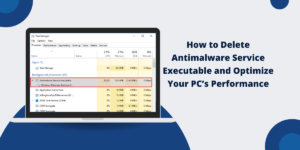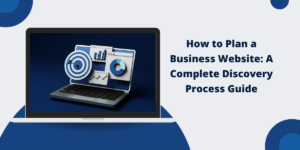In today’s interconnected business landscape, digital security is no longer limited to firewalls and SSL certificates. It now involves a comprehensive understanding of how sensitive data is stored, processed, and safeguarded within every system your business uses. For organizations adopting cloud-based ERP systems, ensuring security means more than installing safeguards—it means choosing platforms designed with security at the core.
Oracle NetSuite has emerged as one of the leading cloud ERP solutions available. It enables businesses to manage financials, customer relationships, and operations on a unified platform. However, understanding NetSuite pricing is crucial because the platform’s cost structure can directly impact which security features are accessible out of the box, and which ones require purchasing additional modules.
- Cloud-native security architecture
- Built-in user access controls
- Data encryption protocols
- Regulatory compliance options
- Role-based permissions available
By clearly understanding these pricing-related distinctions, companies can make better-informed decisions that align operational goals with cybersecurity needs. Choosing the right edition and modules from the outset can help avoid compliance gaps and future budget overruns while ensuring robust protection from day one.
Why ERP Systems Are Targets for Cyber Threats
Enterprise Resource Planning (ERP) platforms are data-rich systems that store everything from customer records and payroll to procurement and financial data. Because of this, they are prime targets for cybercriminals looking to exploit sensitive business data.
A breach in an ERP system can result in devastating losses—financially and reputationally. In fact, recent cyberattacks have shown that attackers are increasingly focusing on back-end systems, where companies store their most confidential data.
Security-focused IT professionals know that every SaaS platform introduced into an organization’s tech stack must be scrutinized not only for its capabilities but also for its security resilience. Some key features to evaluate include:
- Access controls that define user roles and limit system exposure.
- Encryption standards for both data at rest and in transit.
- Audit logging that tracks who did what, when, and where.
- Compliance support for standards such as SOC 2, GDPR, HIPAA, and ISO 27001.
These features often come as part of advanced NetSuite modules or support packages. Understanding their availability and pricing is essential to ensuring your business remains protected.
The Link Between ERP Cost Transparency and Cybersecurity
Understanding your ERP system’s pricing—particularly NetSuite pricing—isn’t just about budgeting. It’s also about knowing which security capabilities are included and which require additional licensing. In many organizations, gaps in this understanding lead to incomplete implementations or security oversights.
For example:
- Role-Based Access Controls (RBAC) may be available by default in some editions but could require advanced configuration or administrative modules for full functionality.
- Secure vendor portals and integrated risk management tools are often add-ons that incur extra monthly fees.
- Audit trail enhancements, automated compliance reporting, or advanced analytics may only be available in premium tiers.
What’s Included in NetSuite’s Pricing?
According to a comprehensive guide on NetSuite pricing, the cost of NetSuite typically includes the following core elements:
- A base platform license, starting at approximately $999 per month, depending on the edition.
- User licenses, which are typically priced at around $99 per user per month.
- Optional modules, such as CRM, eCommerce, Project Accounting, Inventory Management, and more. These modules can range from $300 to $1,500 per month or more.
For businesses in regulated industries or those requiring extensive operational controls, additional costs might include:
- Advanced financials or compliance modules for GAAP or IFRS accounting.
- SuiteCommerce licenses for secure online B2B or B2C transactions.
- Advanced Customer Support (ACS) for enhanced monitoring and security guidance.
It’s essential to carefully assess which modules are necessary not just for operations, but also for maintaining compliance and securing sensitive data.
Compliance and Cost: Are You Paying Enough for Protection?
NetSuite offers specific modules for regulatory compliance (such as SOX, GDPR, and HIPAA), but these often require additional investment. Organizations that assume basic compliance coverage may find themselves exposed during audits.
Understanding pricing ensures that:
- You’re not underinvesting in critical security and compliance features.
- Your auditors and compliance teams have access to required documentation and automation tools.
- You’re not relying on third-party bolt-on solutions that may introduce vulnerabilities or integration issues.
Moreover, many businesses overlook the cost of training and change management—two elements essential for maintaining secure system use. Educating staff on secure workflows and role-based access protocols is just as important as the software itself.
Practical Recommendations for Cybersecurity-Conscious Organizations
To ensure your NetSuite implementation supports your digital security goals, consider the following best practices:
- Conduct a Security Gap Analysis before ERP implementation. Map existing controls against NetSuite capabilities and identify any deficiencies.
- Map pricing tiers to security needs—don’t just compare features on paper. Consider how each module enhances security or supports compliance.
- Involve your security team in ERP license discussions, especially when evaluating add-ons and support levels. Their input is crucial to understanding risk and impact.
- Engage a solution provider or NetSuite implementation partner to help negotiate pricing on security-related modules and provide security-centric setup options.
- Prioritize modular implementation to phase costs and manage risk. Start with essential features and scale as needed, ensuring secure practices are embedded at every phase.
- Invest in secure configuration and audits post-implementation. Ongoing monitoring, penetration testing, and configuration reviews should be part of your ERP lifecycle.
Key Takeaways: Why Smart NetSuite Pricing Decisions Protect Your Cybersecurity Investment
When businesses assess ERP platforms like NetSuite, they often prioritize operational efficiency and cost savings. While these are valid considerations, they shouldn’t come at the expense of cybersecurity. In today’s landscape, an ERP solution must also serve as a secure foundation for managing data and ensuring regulatory compliance.
This is where the importance of understanding NetSuite pricing becomes critical. Knowing the full scope of what you’re paying for helps ensure that you’re not only getting the features you need but also the security architecture necessary to protect sensitive information. With NetSuite’s modular pricing, businesses must be strategic in selecting the right combination of services.
- Evaluate security features in each pricing tier
- Invest in compliance-enhancing modules
- Prioritize access control and audit capabilities
- Consider scalable support packages
- Budget for security training and configuration
Ultimately, your ERP platform should support more than just business processes—it should protect the integrity of your data. Making informed pricing decisions in NetSuite isn’t just about staying within budget—it’s about building a secure, resilient digital environment that can stand up to evolving threats.

Priya Mervana
 Verified Web Security Experts
Verified Web Security Experts
Priya Mervana is working at SSLInsights.com as a web security expert with over 10 years of experience writing about encryption, SSL certificates, and online privacy. She aims to make complex security topics easily understandable for everyday internet users.



